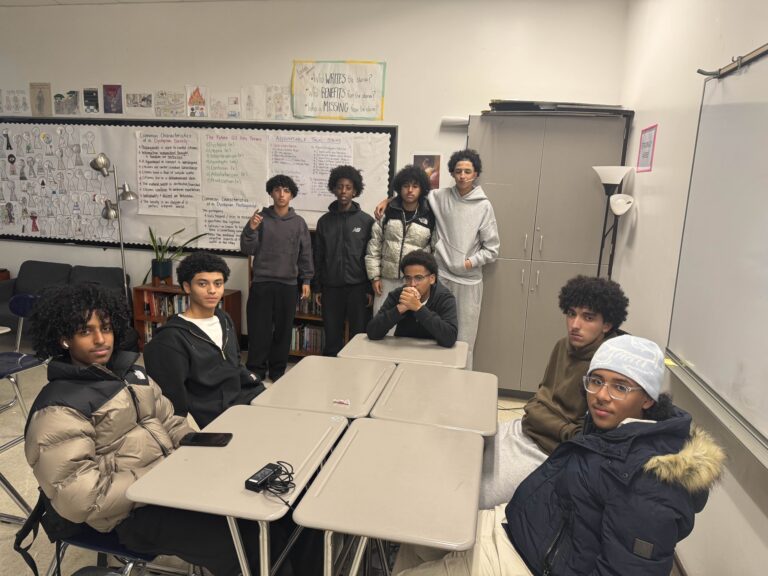Liam O’Toole also contributed to this article.
For the 2021-2022 year at Malden High School, the midterms were changed in order to combat test anxiety, stress, and absences due to COVID-19. Principal Chris Mastrangelo decided that the midterms would not count against a student’s grade unless it would improve their grade. Otherwise, the students would be given an exemption.
Though the changes to the midterms were a source of relief to many students and teachers, there were many students who felt cheated as they studied for hours, while some teachers were annoyed that their mid-year assessments had no incentives for students to try hard and do their best.
“It was a good decision because in the current situation that we’re living right now with COVID is different and the impact that we have suffered so far, during these three years, almost three years of the pandemic is very difficult for students to really concentrate and show what they have learned so far in all their classes,” said Italian teacher Fredy Rodriguez. They continued, “I feel that having midterms would have impacted them negatively because it’s unfair to ask them to do something that they don’t know how to do.”
Though Rodriguez believes that the midterm changes were a great idea, there were some teachers conflicted about the idea.
“For some students [the changes] relieved test anxiety in a positive way, and for some students [it] can make them feel that the test might not be worth their time. And so, for some people, it’s very difficult to think your way out of that. It could negatively affect some students. If they chose not to show up they would have gotten zero outright, but as long as they came in they would suffer no consequences,” explained Chemistry teacher Gregory Simone.
Some students including junior and seniors who are the only students who have taken the traditional high school midterms at Malden High, voiced their dissatisfaction with the midterm. Senior Aidan Ricker said, “I don’t think they should approach midterms the same exact way as this year again. The midterm shouldn’t be able to make or break a year, but it should be worth something, especially for the people who put a significant amount of time into preparing for them.”
Senior Damien Cuevas admitted that “I only put as much effort in as I felt was necessary, as opposed to what was probably needed.”
“I thought the idea of taking a midterm was stressful in itself, and then finding out it didn’t count, I was a bit confused as to why we studied for it in the first place, but I went along with it,” Senior Mackenzie Smith stated.
Many teachers also voiced disappointments in the midterms with some questioning why they had to grade every midterm even though they didn’t count against the student’s grade. Additionally, with the announcement of the midterm changes so close to the midterms themselves, teachers believed that it did not lessen any stress of studying. Other teachers thought that it really just helped those that had test anxiety.
Some teachers thought of the midterm more as a common assessment of a students skills for the past two quarters. Others thought that the number of students that would actually try their best dropped by a large margin. There was no reason for students to try hard when they came to a challenging problem.
History teacher Kurtis Scheer thought that the midterm “was a good way for both students and teachers to see where the students currently stand at the midway point through the year without it necessarily affecting or harming their grade.”
Scheer added he “worries that without including [the midterm] score” if he is “getting a completely accurate representation of a student’s overall grade.”
In order to help students prepare and study for their midterms, the school enacted a “double enrichment” block where students would have two 40 minute periods to work with teachers and get any academic help they needed during the Flex period.
“I didn’t find them helpful. I sat there and did nothing because I was slightly upset about having Joy [Block] taken away for a cycle,” Senior Mackenzie Smith stated.
“I didn’t use them to the full extent I could’ve, admittedly. I felt like the push for the extra enrichment was unnecessary. I saw where it came from but it definitely didn’t achieve what it set out to do,” Senior Aidan Ricker added.
Math teacher Joshua Sellers thought that it was “an opportunity to raise [students’] quarter grade right before the quarter ended.” Some students were studying just as hard partly because they didn’t know about the change in the midterm policy.
Watching students take their math midterms, Sellers noticed “the same things” he would see “during any normal test.” There were signs of students trying to do well even though it may not have counted.




